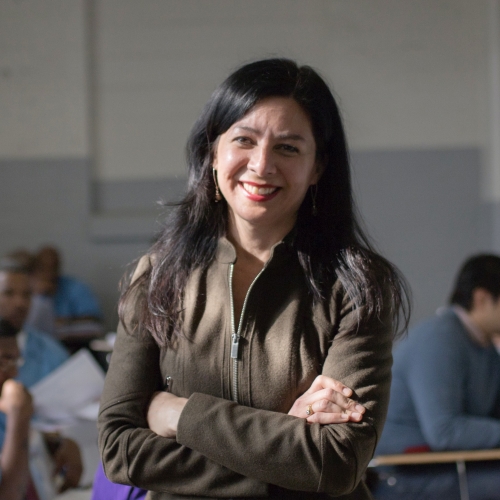The Sellars Lecture in Philosophy
The Roy Wood Sellars Lectureship was established in 1971 to celebrate both Roy Wood Sellars and W. Preston Warren. The latter was for many years chair of the philosophy department at Bucknell and was the author or editor of a number of papers and books on Roy Wood Sellars' philosophy. The first Sellars Lecture was given by Preston Warren and the second by Wilfrid Sellars (with his father in attendance).
2024 Lecturer: Jennifer Lackey
Wayne and Elizabeth Jones Professor of Philosophy and Professor of Law at Northwestern University

Professor Lackey's research is primarily in social epistemology with a current focus on issues involving epistemic reparations and extracted testimony within the American criminal legal system. She is the author of three books, including her recent Criminal Testimonial Injustice, and over 60 articles. She is the founding Director of the Northwestern Prison Education Program, Senior Research Associate at the African Centre for Epistemology and Philosophy of Science at the University of Johannesburg, the editor of five volumes and editor-in-chief of two journals in philosophy, Philosophical Studies and Episteme. Lackey is the winner of the 2024 Humanitas Award, 2023 Horace Mann Medal, and the Lebowitz Prize for Philosophical Achievement and Contribution. She served as President of the American Philosophical Association's Central Division from 2021–2022, was recently named the holder of the Spinoza Chair at the University of Amsterdam, and has received grants and fellowships from the John Simon Guggenheim Memorial Foundation, the Andrew W. Mellon Foundation, the American Council of Learned Societies, and the National Endowment for the Humanities.
Her public lecture will take place on Oct. 16 at 7 p.m. in the Elaine Langone Center Forum.
"Stories That Wrong and Stories That Repair"
Stories are as important as they are ubiquitous, depicting everything from the origin of the universe to the driving force behind an isolated act by a single individual. But stories do not just depict what has actually occurred — they can also exert tremendous power over what does or even can occur. How the unfolding of events is presented in a narrative, for instance, or the layers of a person’s character are sketched, can have monumental consequences for the people involved in them. In this talk, Professor Lackey will focus on one dimension of this, exploring how stories can epistemically wrong a person in life-altering ways and yet also be the source of the corresponding epistemic reparations that are called for in response.